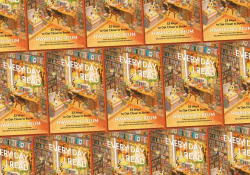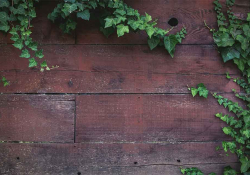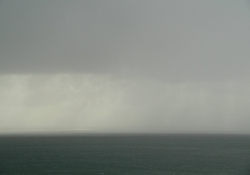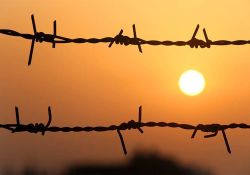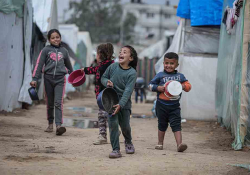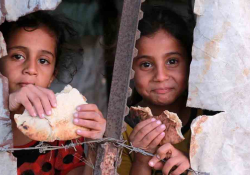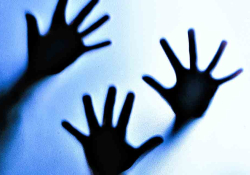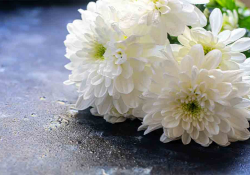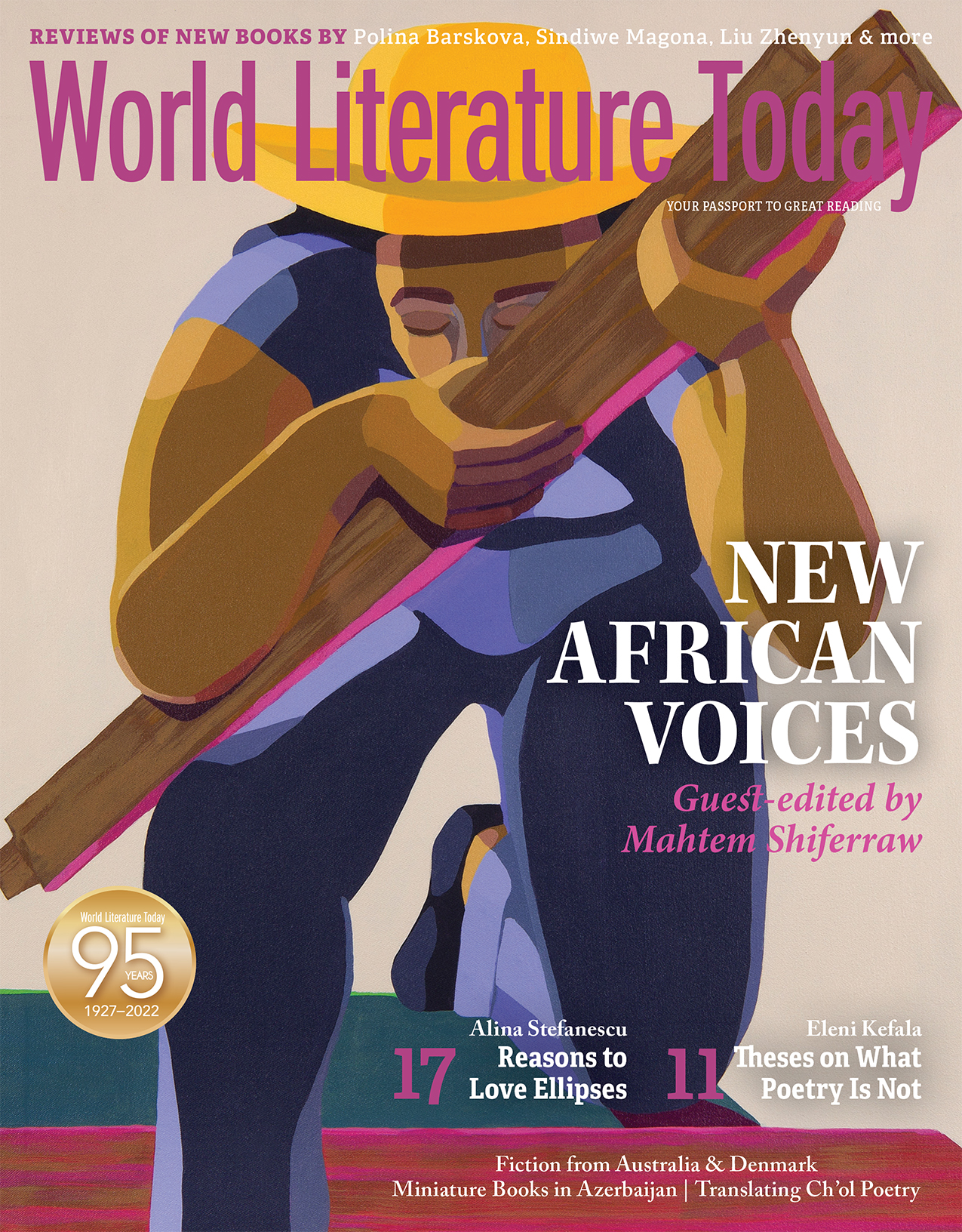Final Landing
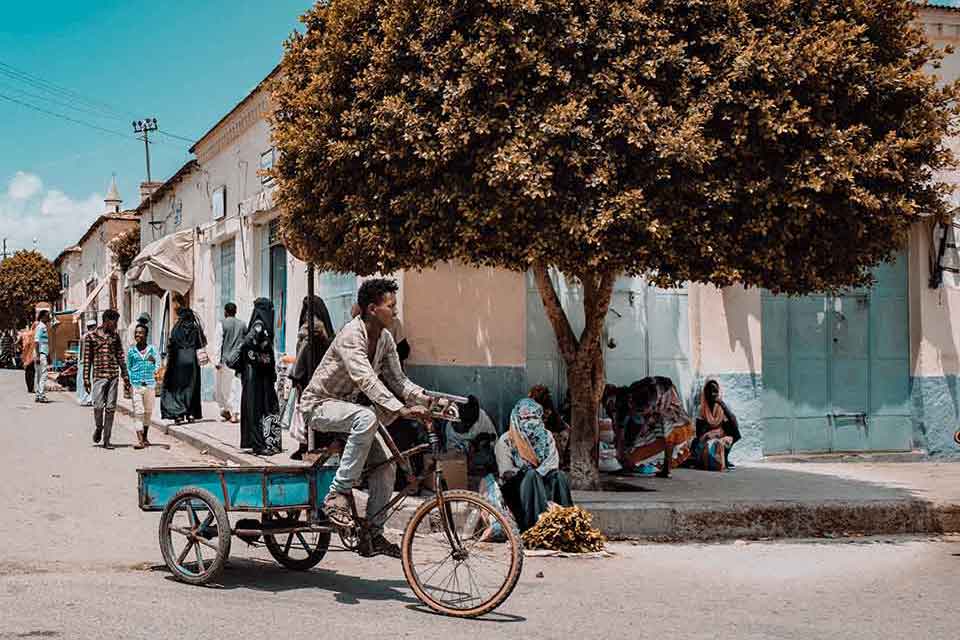
Oscillating between Asmara, Eritrea, and Washington, DC, the narrator reflects on the power of cultural preservation in the Eritrean diaspora, “a country vying to live inside and outside of itself.”
Walking home, the red night sky is crushing closer to earth. Stars splashed across the night, thousands of them, in a haphazard way. The altitude here elevated, in what is known as the hills; the highlands are quiet. Streetlights flicker, and suddenly entire city blocks go dark. Streets and sidewalks begin to merge; pedestrians navigate a labyrinth of solar-powered streetlamps. Headlights and taillights slice the night, beaming toward their destinations. This late, the only places open are smoky bars or cafés with half-open storefronts. By eleven, the city has gone to sleep.
***
My eyes are wide open and have forgotten the weight of sleep. I lie in bed and stare at the ceiling in my room. I stare blankly at the plaster above me. On this particular morning, the sound of raindrops is tapping against the glass window. My head is resting on a pillow and my neck is tilted sideways; for a moment, the rain distracts me; I notice the window, adorned with beads of raindrops. My focus returns to the ceiling. A long crack runs across its center at a diagonal with tinier cracks splintering at the sides. The crack appeared after an air bomber flew directly over our home. Nearly three decades later, it hovers over me.
The capital city towers, surrounded by a plateau; its elevation miles high. A body feels cavernous here, a lightness of head and heart. The wind pierces the sides of your torso like a thousand needles penetrating bone. The bones always remember the unforgiving coldness.
The bones always remember the unforgiving coldness.
Midway to morning, the city awakens to prayer calls, a church, a mosque, suffusing the air, harmonies lingering in the dark as people sleep. Occasionally, a commercial jet lands late at night. Later, it ascends, its red lights in tow, flashing in the sky.
Gheza (ገዛ) translates as both house and home. The four houses that existed for over millennia in the surrounding area of Asmara were known as Gheza Gurtom, Gheza Shelele, Gheza Serenser, and Gheza Asmae. Four women, from each of the four villages, eventually united the four houses to protect themselves from intruders. The four houses that united (feminine plural) became the city, Asmera, known as Asmara.
I lay here, a city hovering in the clouds.
***
The city’s distractions are endless. I walk faster this time, pushing through the elements, the heat, and moving swiftly in between a relaxed shoulder to my right and a stiffly eroding, milky pink pastel-colored wall on my left. Watching an old man limp uphill makes me anxious. A car suddenly stalls, and the driver comes out to fill his gas tank with a liter of petrol. The rocks and unpaved road make a noise beneath my boots, eventually cracking the bottom sole of my right boot. Two young girls pass by me, one with a backpack and another in a long dress. This calms me and I am unsure why.
A woman across the street is alone and appears pensive; perhaps she is waiting for someone. When her date finally arrives, she shrugs her shoulders back in a rowing motion, sliding what would have been what was left of the conversation of herself. I hear a friend’s voice in my head.
You don’t read what they say. You read their intentions.
The city is a revolving door of old friends and new strangers; timelines run through it like lacework, looping eventually. Continuity found in surprising and unfamiliar spaces. Over time, the city feels transient. Lines are drawn and emboldened, running parallel, perpendicular, intersecting through ceilings, walls, floors, windows, accented by humans. Sparse and subtle like punctuations at the end of sentences. Odd and charming, the architecture reflects a multitude of styles. Patches of gray and black stone slabs appear with mortared walls, lining the bottoms of buildings. The fusion, an experimental wonder.
The city is a revolving door of old friends and new strangers.
Asmara’s beauty is modest, uniquely hidden—an eventual discovery, depending on the onlooker. Hoary gates, six feet tall, which protect private homes, creak gently when opened. Shards of broken bottoms from bottles are fixed atop brick walls surrounding the gates—like jagged haloes to keep intruders from entering. Standing tall are giant casimiroa fruit trees that ripen and eventually splatter cream-color onto street sides. The smell of freshly roasted coffee pervades the air, signaling a new guest’s arrival.
Summer rains in the highlands start precisely at noon after a heat-intensive morning. Every day for ninety days, the sky breaks open, pouring down rain heavily for hours as people head home from work for lunch. The earth replenishes, as everyone else waits for the rains to cease. Old brooks, turned into newly paved roads, flood entire streets, as the landscape reminisces.
***
Insignias of former occupiers are imprinted onto the sides of buildings, manhole covers, and plaques.
Novecento, neoclassicism, neo-baroque, Moorish, monumentalism, futurism, and remnants of fascism.
The Ministry of Education was once the headquarters of the Italian Fascist Party, the building fashioned after the capital letter “F” lying on its side. Looking around, people seem impervious and tranquil. I think there is something transformative about living through, liberating yourself and evolving past your brutish histories, even when signs of this past are everywhere.
On several occasions, I notice a man in a wheelchair with what looks like ski poles, wheeling himself throughout the streets of Asmara. I watch him. The cars moving past him or the other hostilities and challenges that are before him do not sway him. He is gaining momentum, riding up and down, and even circling a busy roundabout in the middle of traffic. Though he is paralyzed from the waist down, his movements are agile, and his upper body is stalwart. Even though he is a stranger, I know his story. Eventually, I will befriend him. I want to be this strong, this determined in my movements. I wonder what it’s like to be at one with a mangled body. I wonder what it’s like to have sacrificed your limbs for freedom. I want to be this strong, this determined in my movements.
In a documentary titled Eritrea: 30 Years of Solitude, an interviewer asks a woman in Massawa to describe the massacre she witnessed when the Ethiopian Derg regime used illegal napalm and cluster bombs in Massawa in February 1990.
”It was Wednesday; market day. Our daughter had gone out to buy a comb. All of a sudden a plane appeared. It bombed the main square, killing sixty people. My daughter was among them, my niece and her son. They were killed outright. It was six o’clock when they were buried under the rubble. That’s how the tragedy happened. It was a plane with a muffled sound, it destroyed the marketplace in one fell swoop. When it was gone, I ran outside, toward the sea. I was determined to drown myself, but a fighter stopped me and brought me home.”
A Poem
This is for the mothers whose strength is immeasurable
Who carry their children on their sturdy backs
While their children lie on their shoulder weeping
Clinging to their mothers’ netsla
With their feeble fingers
Burying their tiny heads
Into their backs
Their only resting place
There is a blessing bestowed on you for good deeds or showing goodwill toward another. Always given by older women and mothers.
ሓሳብ ልብኺ የሰምረልኺ::
Hasab lbikhi yesemrilkhi.
May your heart’s thoughts materialize.
The heart carries its secrets.
The blessing sits in my chest long after it is given.
***
People lose themselves in life over and over again. Some travel in search of an escape from parts of themselves. People often ask how I can travel to Eritrea so often, but coming here is not a getaway, it’s a place of restoration. I have always felt I was living in moments of appearances. Living in between both Washington, DC, and Eritrea made me a ghost; wherever I was, I also wasn’t. I’ve begun moving, back and forth, between two very different countries. I would confuse being in one country for the other. Some nights I awoke in the middle of the night not knowing where I was. It happened two or three times in the span of a few years. It happened on either side of the world. My mind and body missed my other life, my other-self. I was living elsewhere even in my sleep. Startled, in those few seconds between being asleep and awake, I look around the room to figure out where I am. For those few seconds, home is not home. There is no end.
It was another sort of displacement: to be home and not know you were already there. The longer I stay away from either place, the more I try to carry its histories, places, and memories. Time proves my efforts futile and what is past is past and all things feel like illusions. People are on the streets, turning and hurrying past corners of the sidewalk. As I look up, I notice the cathedral clock tower ring; it’s noon and everyone is rushing home for a siesta. I have not yet adapted to the concept of going home at noon for a lunch break. I am hoping I will eventually learn to grow accustomed to it.
It was at this moment I realized I was a workaholic, or at least came from a culture that shamed the thought of resting at midday.
I am headed toward the main post office downtown, and as I walk against the traffic of people leaving the city center, I think this is all too familiar. I never seem in flow with the current, no matter where I am.
As I continue to walk, I am reminded of a conversation I had the other day. I was told with a shrug of a shoulder that I was an outsider. Though I understood the logic behind his thought, I was not in complete agreement. The word outsider was loaded. It wasn’t so much the thought he presented, it was his mien about it that irked me. I never understood how another person could automatically assign a tier to another person’s identity or experience. Especially when based on nonfacts and mere presumption.
My understanding of our country came from the economic, social, and political organization of the Eritrean diaspora. That our country has had to constantly reconfigure itself and adapt to survive. Delina, for instance, left Asmara thirty-five years ago. She walked the deserts, rode on camelback late into the night to avoid being spotted by enemy forces while crossing borders into eastern Sudan. In her recollections, she couldn’t imagine how she did this, only that she did.
She told me she didn’t sleep for weeks. Eventually, she entered the United States and resettled in a dilapidated neighborhood known as the H Street Corridor in Washington, DC. Twenty years earlier, the H Street Corridor, a few streets from where she lived, was declared a war zone.
The H Street Corridor sustained significant damage after the 1968 riots following the assassination of Dr. Martin Luther King. In four days, over nine hundred businesses burned to the ground as entire neighborhoods were destroyed. After the riots, thirteen thousand troops would arrive—the most to occupy an American city since the Civil War—to salvage what was left. Delina moved to DC at the height of the crack epidemic in 1988. Newspapers continued to call Washington, DC, a city under siege. I have no recollection of H Street in the sixties, other than that it was home to working-class residents and was the second largest shopping district in the city.
While other neighborhoods recovered in the nineties, the H Street Corridor is only now seeing its reconstruction.
It dawned on her that America was not the place she imagined.
Delina had left one conflict zone for another, and this to her was cruel. It dawned on her that America was not the place she imagined. The night she arrived, she locked herself in the bathroom of her brother who lived in a small studio apartment. He slept on the floor. And when he left for work at his day job as a line cook at a Mexican restaurant, she lay in his bed all day, crying. Her tears streamed down her face and triggered a familiar panic and sedation she felt in the war-torn country she had fled. Though she had her brother, she was distraught at the nature of her future and, mainly, the fracturing of their family. This was a fraught and harrowing thought for her. But one that came as an afterthought.
Her move was out of necessity and not a natural occurrence. One I could not understand because I was born outside my homeland. I suppose that is what the person meant by the term outsider, a person who had spent their formative years elsewhere. My estrangement was not one I could trace. Though I had not directly experienced loss the way Delina had, I still had the senses that occupied it; something was missing, and it was an uncertainty I could not articulate. Of course, there were systems that separated us. I was an American, and in that vein, my privilege was pronounced. This was true, but in spirit and belief, I did not think we were different or disconnected. We were anchored down and unmoored by places. We just couldn’t come to see each other’s struggles in between our disagreement.
I believed that it did not serve us as a people to negate one another, especially based on one’s birthplace.
“Have you heard of the writer Naguib Mahfouz?” I say.
“Yes, he’s Egyptian.”
“Right, he said, ‘Home is not where you are born; home is where all your attempts to escape cease.’”
“So, does Eritrea feel like home to you?”
“Yes.”
“Well, I’ll say this. In order to really understand life here, you must live here for at least two years. I mean, to really understand what it is like.” I think this is fair.
People I encounter underestimate that there are people in the diaspora who want to return.
That they are tired and estranged. That part of the strategy of exit was the inevitable return.
Well, why don’t they just come? Like you?
It is hard to reconcile that kind of lost time.
The power of cultural preservation in the Eritrean diaspora was a means to contain any erasures that could come with having to form a new identity elsewhere. A country vying to live inside and outside of itself. Home was in the mind, and many of us, like Delina, had not been back to Eritrea in decades. We were exiled and stationed abroad by unending war. It is hard to reconcile that kind of lost time. Yet still, our hearts and minds were not with us, we did not live in our bodies; we simply carried them, hoping they would one day return to us.
Brooklyn, New York


